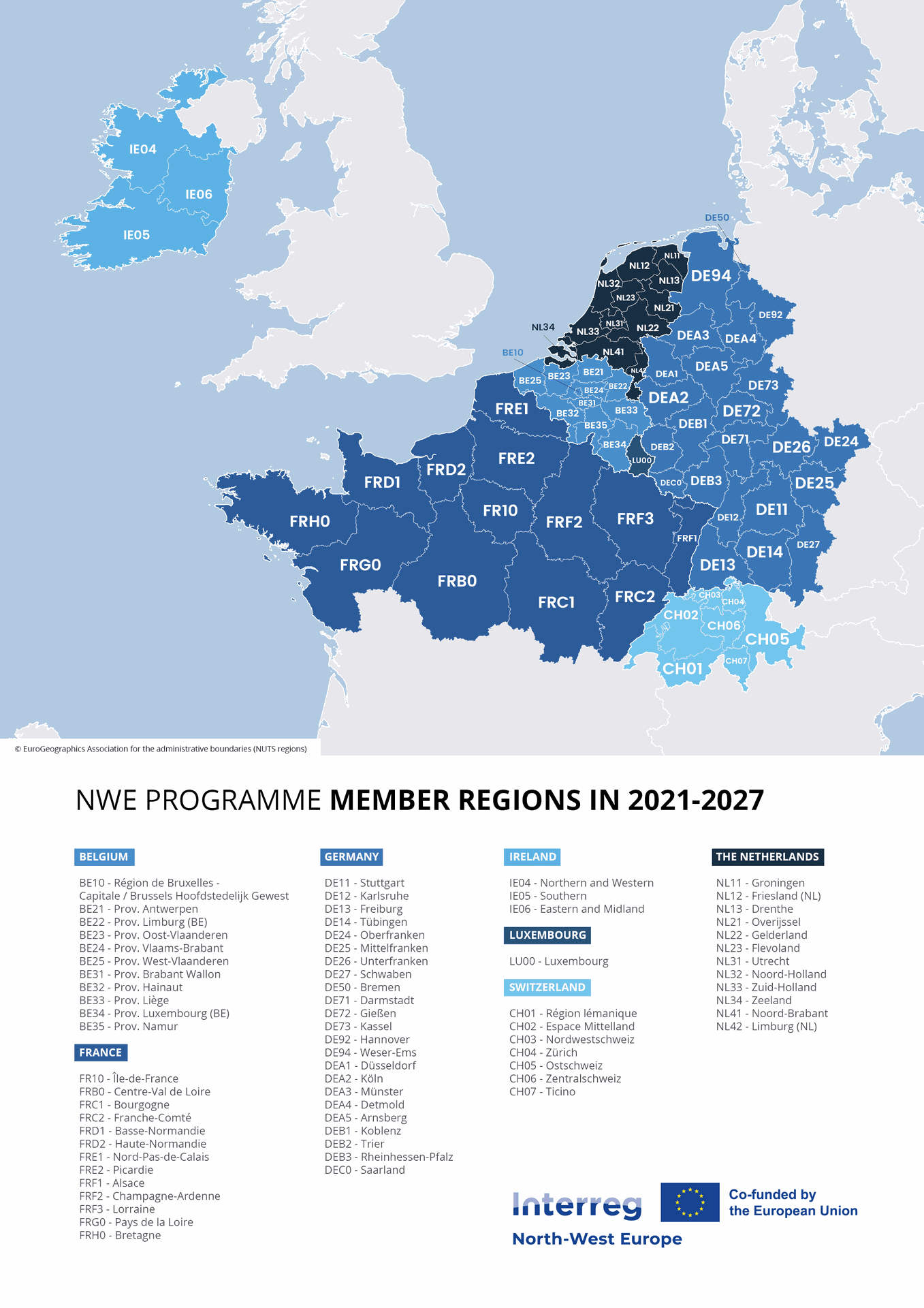North-West Europe is one of Europe’s most urbanised and densely populated areas. It is also among the most productive and wealthy areas with a high concentration/degree of innovation activities and high levels of digital and transport connectivity. At the same time, territorial challenges and disparities between territories persist.
When looking more specifically into the overall high level of economic wealth, the pattern at the local level shows that wealth is not evenly distributed across the cooperation area. For instance, GDP per capita is much higher in capital cities, towns and urban areas than in most rural regions of the NWE area.
Simultaneously, some rural territories have high rates of employment, alongside certain urban neighbourhoods struggling with unemployment and social exclusion. Overall, the high level of industrialisation and productivity in NWE comes at a price. Negative environmental effects on air quality, greenhouse gas emission levels as well as water quality make the adaptation to climate change effects even more pressing.
Achieving net-zero carbon emissions by 2050 will require a transformation that goes beyond focusing on the financial, regulatory and technological shifts and places citizens and communities at the heart of the transition. To achieve the so-called just transition is therefore a common challenge for all NWE territories.
The strategy of the NWE Programme addresses the territorial challenges of the different NWE territories and focuses on place-based solutions developed in a transnational format. Specific challenges are similar across the NWE area with complementary characteristics. The analysis of strengths, weaknesses, opportunities and threats has allowed to identify joint investment needs across the area that would benefit from territorial action and cooperation.
The seven countries covered by NWE

























Trier
Seven countries are participating in the 2021-2027 Interreg North-West Europe Programme: Belgium, France, Germany, Ireland, Luxembourg, The Netherlands and Switzerland.
We are particularly proud that six new regions from Germany (Bremen, Leine-Weser and Weser-Ems) and the Netherlands (Groningen, Friesland, Drenthe) have joined our Programme.